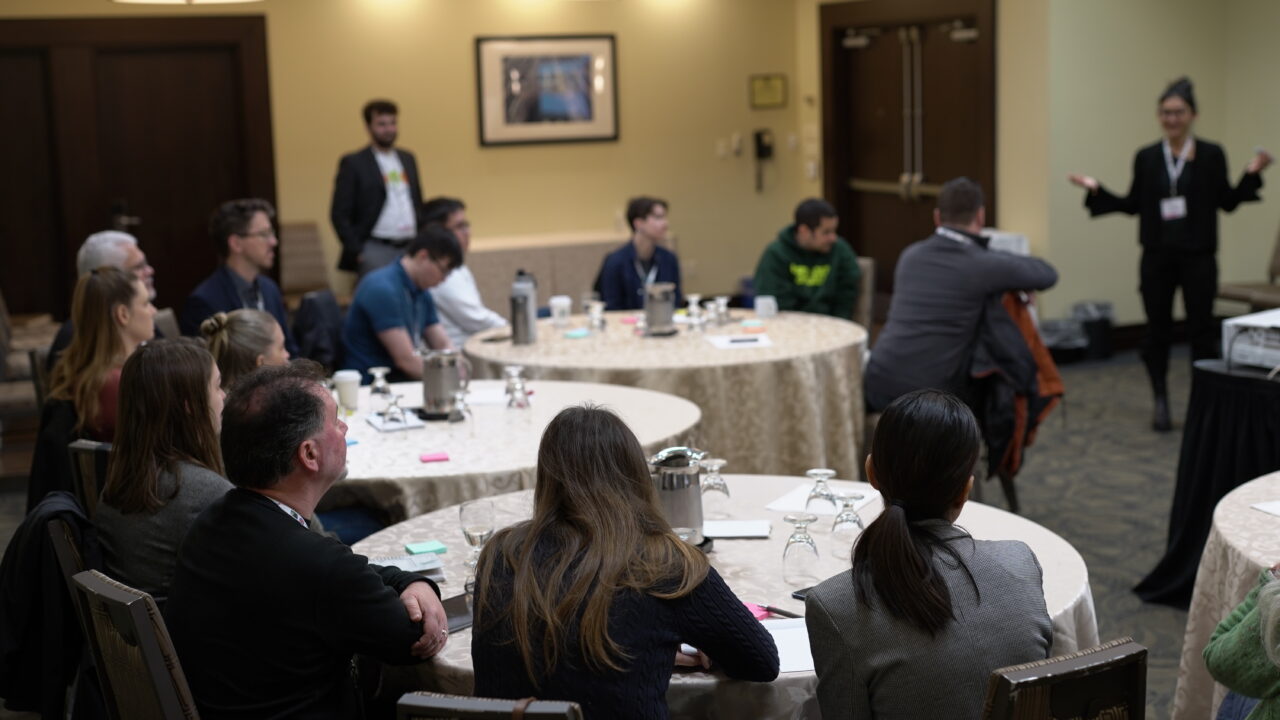Last month, The Centre for Active Transportation (TCAT) convened 10 bike hubs across Ontario at the Share the Road conference in Hamilton. The goal of this convening was to deepen connections among practitioners doing similar work, identify opportunities to collaborate down the road and pursue ways that bike hubs might be able to jointly secure stable funding in the future. While we don’t have the official data, here at TCAT, we are going out on a limb and suggesting that this was the largest official convening of bike hubs that has ever occurred in the province.
TCAT was joined by the following bike hubs:
- Bike Brampton (Brampton)
- B!KE Community Bike Shop (Peterborough)
- Bikes for Farm Workers (Niagara)
- Charlie’s FreeWheels (Toronto)
- Gateway Bike Hub (North York)
- Markham Cycles (Markham)
- Mississauga Cycles (Mississauga)
- Newmarket Cycles (Newmarket)
- Sheridan Bike Hub (Mississauga)
- The Bike Kitchen (Windsor)

Each hub was asked to contribute through a Pecha Kucha style presentation — 5 minutes to rapidly share what services or programs they provide, success stories, long-term goals, and major barriers to achieving these goals. Here are two main takeaways from the session:
Across Ontario, bike hub programming is “same, same but different”
Many bike hubs offer similar programming across the province. While every hub adds its own flare to each given type of programming, the most commonly offered programs include some variation on:
- Bike repair sessions where participants learn how to maintain their own bikes with the help of on-site staff and tools.
- Earn a bike programs where participants learn to perform more intensive mechanical repairs and take home a bike at the end of the program.
- Group rides that explore local infrastructure and trails.
Despite such similarities, it was interesting to note the experiences that differed throughout. Some hubs are drowning in bike donations, with little capacity to refurbish those bikes and get them back into the community; others have mechanical capacity but no bikes to work on. One bike hub noted that participants are lining up out the door to participate in “Earn a Bike” programs, while for another, it’s their least attended program. These varying experiences offer immense opportunities to learn and share strategies from different jurisdictions to run these programs successfully.
Across Ontario, bike hubs are under-resourced
To no surprise, many participants shared how they are the only full-time staff working at the hub, with day jobs that, at any given moment, can pivot from fixing a chain to administering payroll. We were struck with both awe and sadness seeing how much impact these incredible practitioners manage to make with so little to work with.
Both these takeaways assured us that these types of convenings — organic spaces where bike hub practitioners can connect, celebrate, and commiserate — are essential for sharing valuable lessons, catalyzing innovation and advancing active transportation in our communities. Stay tuned!
By Jennie Geleff, TCAT Project Manager